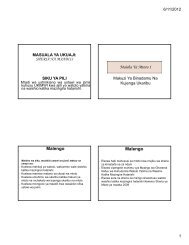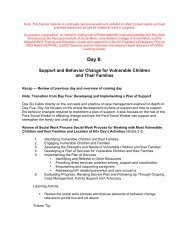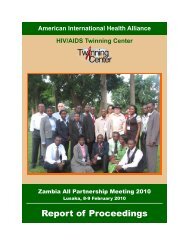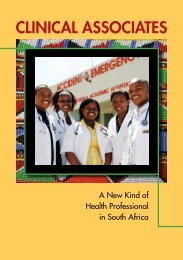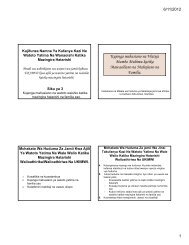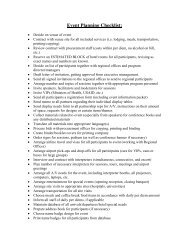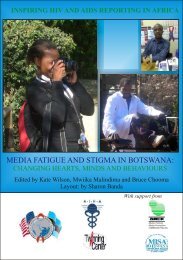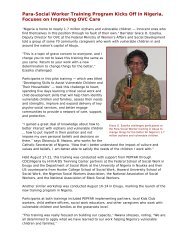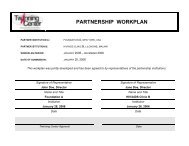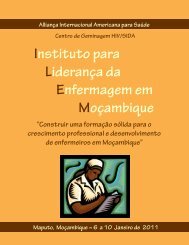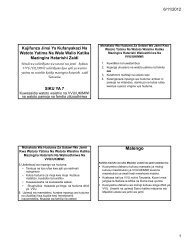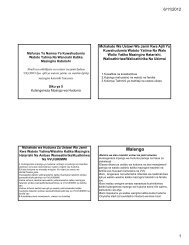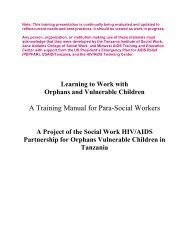Mobilizing Diaspora Volunteers for Public Health Capacity Building
Mobilizing Diaspora Volunteers for Public Health Capacity Building
Mobilizing Diaspora Volunteers for Public Health Capacity Building
Create successful ePaper yourself
Turn your PDF publications into a flip-book with our unique Google optimized e-Paper software.
Washington’s International Training and Education Center <strong>for</strong> <strong>Health</strong> (I‐TECH). These volunteers<br />
contributed a total of 552 months of volunteer time with an average volunteer assignment of around 12<br />
months. 14 Several profiles of individual volunteers are included in the appendix to this report, but they<br />
per<strong>for</strong>med a wide range of functions including developing pain treatment guidelines <strong>for</strong> the country’s<br />
health professionals, building an online plat<strong>for</strong>m <strong>for</strong> the FMoH, per<strong>for</strong>ming outreach to <strong>for</strong>eign<br />
universities, refining and developing medical curricula <strong>for</strong> the country’s teaching hospitals, and<br />
examining the country’s anti‐retroviral treatment program.<br />
Figure 1. Volunteer Recruitment and Placement<br />
Source: Visions <strong>for</strong> Development, Inc.<br />
Guiding Principles and Lessons Learned<br />
The experience of the EDVP is an example of how the energies and expertise of diaspora volunteers can<br />
be mobilized through the ef<strong>for</strong>ts of government and nonprofit institutions in the origin and destination<br />
countries. Doubtlessly, the experience is also of value to other ef<strong>for</strong>ts to mobilize diaspora volunteers.<br />
This section identifies key lessons learned from the program. Below we list several guiding principles and<br />
14 Visions staff identifies potential candidates through its network of Ethiopian professionals and interviews them<br />
using a structured interview questionnaire. Interviews are conducted at the convenience of the interviewee,<br />
mostly in person or over the telephone.<br />
<strong>Mobilizing</strong> <strong>Diaspora</strong> <strong>Volunteers</strong> <strong>for</strong> <strong>Public</strong> <strong>Health</strong> <strong>Capacity</strong> <strong>Building</strong> | 7



